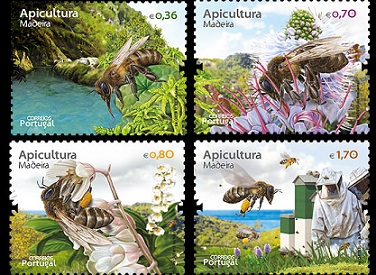Seeding is over for this year on Canadian corn and soy farms. But a student’s research suggests the consequences on bees could last a long time. He has collected data that showed apiaries installed less than three kilometers (1.86 miles) from insecticide-treated fields had rate of mortality three times higher. The Quebec master’s student, Olivier Samson-Robert, had attempted to put a figure on the noted decline in bee populations and detemine how much of it was linked to a certain type of insecticide.The Laval University student released the first part of his study about bees’ mortality around fields treated with neonicotinoid insecticides, one of the most widely used insecticides in the world.“The neonicotinoid insecticide causes a higher mortality rate,” Samson-Robert says.
Neonicotinoid insecticides have been allowed in Canada since 2004.They are chemically similar to nicotine, which has a long tradition in agriculture. Tobacco has been used as an insecticide since at least the 15th century, according to the U.S. Environmental Protection Agency.Samson-Robert says insecticide is ubiquitous, with 99 percent of corn seeds and 50 percent of soy seeds in Quebec coated with it, over a land mass that covers 500,000 hectares (1.24 million acres) of the province.Particles from that insecticide escape into the air when the seeds are planted, Samson-Robert says. He argues that using a funneling device to steer the seeds straighter into the ground when seeding would help reduce contamination.He says particles from insecticides fall onto bees, or onto the flowers that bees are visiting. Particles also are present in the water bees drink, he says.According to Jean-Pierre Chapleau, spokesman for the Quebec Beekeepers’ Federation, beekeepers want neonicotinoid insecticides banned.Chapleau says beekeepers don’t blame farmers, because they can’t buy seeds that have not been treated with insecticides even if they want to.
See more at: http://www.agweek.com/event/article/id/21203/#sthash.wod9DVlV.dpuf

- Login om te reageren
